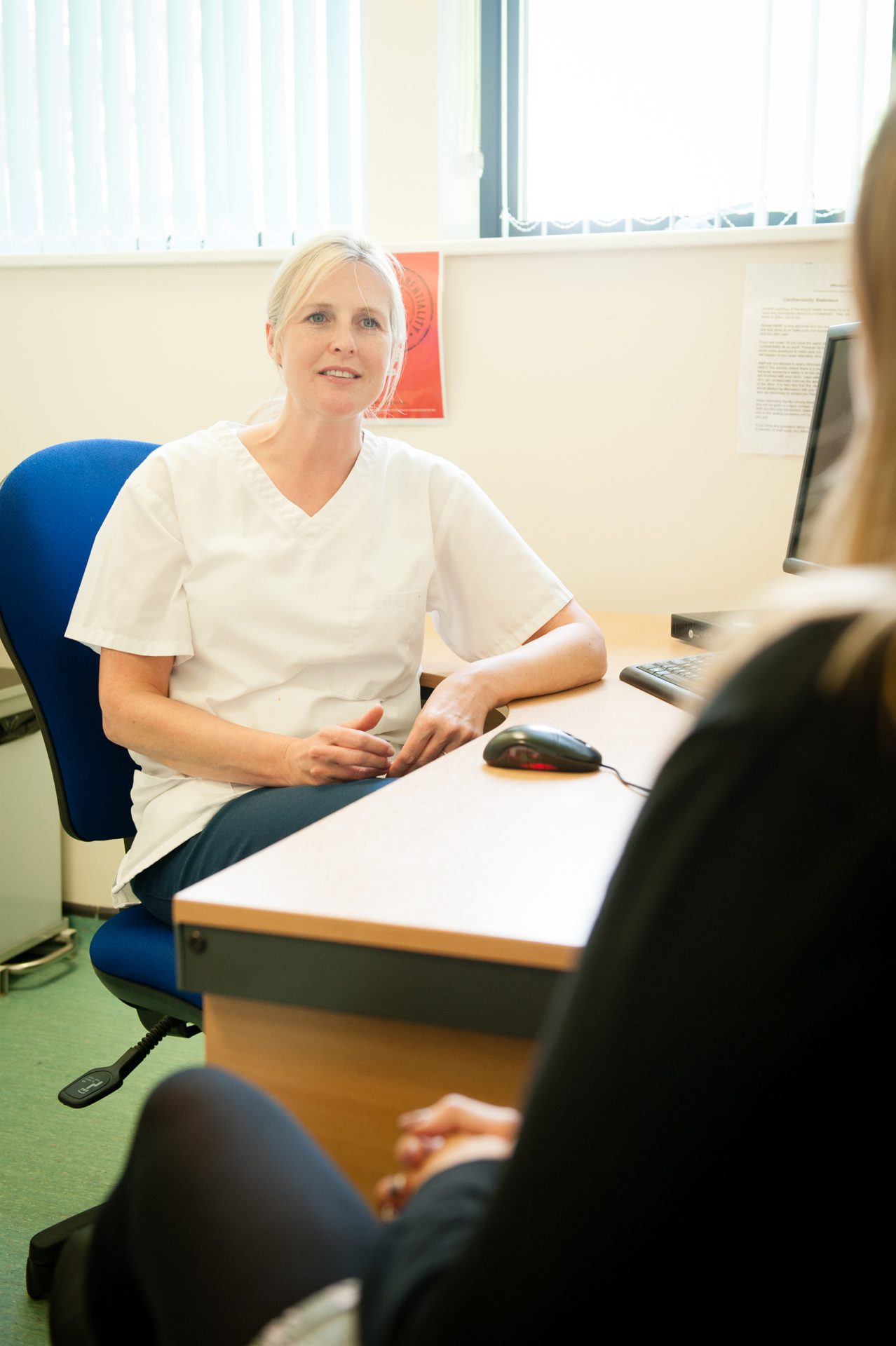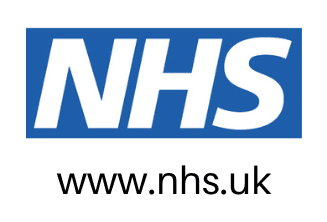Pregnancy Advisory Service
The Pregnancy Advisory Service offers specialist abortion care for women throughout Gloucestershire who have become pregnant and are considering ending their pregnancy.
We offer a confidential and non-judgemental service. We are here to support you and talk through your options and help you to access the care you need.
What’s On the Page
About the service
Pregnant & don't know what to do?
Abortion and your rights
Types of Abortion
AFTERCARE
CONTRACEPTION
FAQs
Testimonials
More...
About the service
The Pregnancy Advisory Service is based at Hope House in the grounds of Gloucestershire Royal Hospital and offers treatment, advice and support for women throughout Gloucestershire who have become pregnant and are considering an abortion.
We offer confidential, non-judgemental and non-directive support. We are here to talk through your options with you and help you to access the care and support you need.
You can call us on 0300 421 6532, Monday-Friday, 8am-4pm, or complete our online self-referral form.
You will be offered an appointment with a specially-trained nurse, either on the telephone, video call or face to face in clinic, to talk about your options and plan your care.
We aim to offer you an appointment within 2-5 working days.
1 in 3
women have had an abortion by the age of 45
Pregnant and don’t know what to do?
If you have had a positive pregnancy test, you may have mixed feelings and be unsure of what to do next.
You have three options:
- Continue with the pregnancy
- End the pregnancy by having an abortion
- Continue with the pregnancy and consider adoption

Contact US
You are not alone in making this decision. We are here to talk it through with you and help you access the care and support you need.
Call us on 0300 421 6532 Monday-Friday, 8am-4pm, or complete our online self-referral form.

Further information
If you are pregnant and don’t know what to do,
further information can be found on the Brook website,
via the links below.
Considering abortion?

Some women are very clear about wanting to have an abortion. Others will want to talk it through in detail to help them arrive at their decision.
It can help to seek advice from trusted friends and family as well as specialist organisations. At Hope House we offer decision-making support for women who need this.
If you decide ending the pregnancy is the best course of action for you, we can provide specialist abortion care up to 17 weeks and 6 days of pregnancy. Abortions can be offered legally up to 23 weeks and 6 days of pregnancy and so if your pregnancy is 18+ weeks we will help you to access this care.
We offer two types of abortion: medical abortion and surgical abortion
The method that is right for you will depend on your gestation (how many weeks pregnant you are), your medical examination and history, and your personal choice.
You are not alone in making this decision. We are here to talk it through with you and to help you access the care and support you need. Call us on 0300 421 6532 today to talk through your options.
Abortion and your rights
There are safe and legal options for ending a pregnancy. In England, Scotland and Wales, you can legally have an abortion at up to 23 weeks and 6 days of pregnancy, in line with the Abortion Act 1967.
Abortion law in the UK
In Northern Ireland, access to abortion is limited as the Abortion Act 1967 was not extended to this region.
In England, Scotland and Wales, there is no gestational limit for abortions if there’s evidence of a fatal fetal abnormality or a significant risk to your life if you continue with the pregnancy.
If you come to us for an abortion, we’ll ask for your reasons for wanting one, which we are required to do by law. Two doctors need to make sure the requirements of the Abortion Act are met, and sign the relevant certificate. We will arrange this for you.
Your right to confidentiality
Our commitment to protect your privacy
We send the forms to the Government’s Chief Medical Officer, and they use this information in their abortion care statistics. The information that we send does not include names, but it does include other information such as:
- Patient NHS number
- Date of birth
- Postcode
- Ethnicity
- Marital status
- Treatment details

Early medical abortion
An early medical abortion uses medication to end a pregnancy. The treatment involves taking two types of medicine at two different times. It is the safest treatment option up to 9 weeks and 6 days of pregnancy for most people.
How does it work?
The first medication taken is a tablet called Mifepristone. This is an anti-progesterone (or anti-pregnancy) tablet which blocks the hormone needed for the pregnancy to grow and starts the abortion procedure by causing the separation of the pregnancy from the lining of the womb.
The second medication involves tablets called Misoprostol. Misoprostol causes the softening and opening of the cervix (neck of the womb) and muscles of the uterus (womb) to contract, which results in the passing of the pregnancy through the vagina to complete the abortion process. You can take Misoprostol between 24-48 hours after you have taken the first tablet (Mifepristone).
What to expect
Using the Diclofenac suppository given in the care pack can greatly help with this type of cramping pain. Taking pain relief before the pain comes is the most effective way to help keep you comfortable. We also advise you have paracetamol as soon as you notice any light cramping and use your Dihydrocodeine to top up your pain relief as needed. Walking around and hot water bottles can also ease any discomfort.
The strong cramping pain usually settles once the pregnancy has been expelled, although you may have light cramps for a few days. These cramps should be easily settled with paracetamol or ibuprofen.
Your bleeding can be heavier than your usual period and contain very large clots and pregnancy tissue. Using sanitary pads will help you see the amount you are bleeding and you may have to change them more often than you usually would during a period. However, if the bleeding is so heavy it fully soaks through two or more large sanitary pads in an hour, and this level of bleeding continues for two hours or more, you should have an urgent review at Gloucestershire Royal Emergency Department and show them your discharge letter.
Once the pregnancy has passed your bleeding should begin to settle over the next two weeks. If your bleeding is not settling, or you continue to pass large clots, please call us on 0300 421 6532 to book a review.
You may continue to have light spotting until your next period, which will usually be 4-6 weeks following an early medical abortion. The bleeding you experience during the two weeks following your abortion is not a period. Any contraception you have started may alter your usual bleed pattern.
If you do not have your period and you have any concerns you are still pregnant, please call us on 0300 421 6532.
Complications
- No bleeding within 24 hours of the Misoprostol
- Less than four days bleeding in total
- Pain or bleeding that is not improving after a few days
- Still feeling pregnant at the end of the first week
- Continuing to have symptoms of pregnancy, including:
- Sore breasts
- Sickness
- Tummy growing
- Developing any signs of infection, including:
- Temperature
- Flu-like symptoms
- Unusual vaginal discharge
Please contact us on 0300 421 6532 to arrange a review.
Surgical abortion
Surgical abortion is a safe and simple procedure used to end a pregnancy.
Our service offers surgical abortion up to 17 weeks and 6 days of pregnancy. However, surgical abortions can be offered legally up to 23 weeks and 6 days of pregnancy and so if your pregnancy is 18+ weeks we will help you to access this care.
We offer surgical abortions with local anaesthetic up to 12 weeks of pregnancy and general anaesthetic for surgical abortions up to 17 weeks and 6 days of pregnancy.
For all procedures the Trust will sensitively dispose of the pregnancy remains. Alternatively, you can choose to make your own arrangements.
Local anaesthetic
If you are between 7 and 12 weeks pregnant we can carry out a safe and simple surgical procedure at Hope House, known as an MVA (Manual Vacuum Aspiration), while you are awake.
How does it work?
- Manual vacuum aspiration (MVA) abortion is a safe and simple surgical procedure used to end a pregnancy and is carried out as a day case at Hope House.
- MVA is performed between 7 and 12 weeks of pregnancy in our service.
- The MVA is carried out while you are awake.
- The pregnancy is removed by passing a narrow tube into the womb and using suction. Everything is done through the vagina, and there is no cutting or stitching involved.
What to expect
During an MVA procedure you will normally be given medication to prepare your body – this is called Misoprostol. You may experience cramping pain and some bleeding following the Misoprostol, which is before your procedure starts. We normally also give you a painkilling suppository before the procedure.
It is normal to experience strong cramping during the MVA procedure, and is most intense as the procedure is coming to the end. This pain usually settles quickly. There is a variety of pain relief available to make you more comfortable – please just ask if you feel you need more.
You might experience some light cramping for up to 2 days after the procedure. You can experience light cramps up to two weeks following a surgical procedure – these can be managed with paracetamol or ibuprofen.
Your bleeding may be light and intermittent and may contain small clots. Your bleeding may last up to two weeks following your surgical procedure and you may continue to spot until your next period. Your bleeding is not always as heavy as your usual period.
Using sanitary pads will help you see the amount you are bleeding. If the bleeding is so heavy it fully soaks through two or more large sanitary pads in an hour, and this level of bleeding continues for two hours or more, you should have an urgent review at Gloucestershire Royal Emergency Department and show them your discharge letter.
Complications
- Pain or bleeding that is not improving after a few days
- Still feeling pregnant at the end of the first week
- Continuing to have symptoms of pregnancy, including:
- Sore breasts
- Sickness
- Tummy growing
- Developing any signs of infection, including:
-
-
- Temperature
- Flu-like symptoms
- Unusual vaginal discharge
-
Please contact us on 0300 421 6532 to arrange a review.
After a surgical abortion
General anaesthetic
If you are more than 12 weeks pregnant we will carry out a surgical procedure while you are asleep under a general anaesthetic. This will be carried out at a theatre within the county.
How does it work?
There are two different types of surgical abortion with general anaesthetic:
Vacuum aspiration – for pregnancies up to 14 weeks gestation. During the operation the neck of the womb will be gently opened. A tube is then inserted and the pregnancy tissue is removed using suction. The procedure usually lasts about 10 minutes. At the end of the procedure, while still asleep, you will be given antibiotics and a pain relief suppository called Diclofenac.
Dilatation and evacuation – for pregnancies 14-18 weeks gestation. During the operation the neck of the womb will be gently opened. A tube is then inserted and the pregnancy tissue is removed using suction and small forceps. At the end of the procedure, while still asleep, you will be given antibiotics and a pain relief suppository called Diclofenac.
You will be advised which type of abortion you need according to how many weeks pregnant you are.
What to expect
The general anaesthetic is usually administered through a needle in the back of the hand.
The procedure is performed while you are completely asleep.
Vacuum aspiration: for pregnancies up to 14 weeks gestation
We recommend that all women having a surgical termination of pregnancy have medication before their procedure to prepare the neck of the womb (cervix). This medication is called Misoprostol and is given to you before your abortion. Misoprostol is placed under the tongue or inside the vagina. You need to be certain that you wish to have the procedure before you take the Misoprostol. If you have any concerns, please discuss with a nurse before taking the medication.
The Misoprostol may give you some cramps and/or bleeding. This is a sign that the medication is working. We will offer you pain relief if required. Other common side effects of Misoprostol include nausea and vomiting. If this happens, we will offer you anti-sickness medication. You may also notice that you have loose bowels or feel chills.
Dilatation and evacuation: For pregnancies 14-18 weeks gestation
We recommend that all women having a surgical abortion over 14 weeks have additional medication to prepare the neck of the womb. This is an anti-progesterone oral tablet called Mifepristone.
Mifepristone is taken 24-48 hours before your procedure and is administered during a short clinic appointment. It softens the cervix, reducing the chance of damage to the cervix and womb. It also stops the hormone supply to the pregnancy, and is the start of the abortion process.
Most people experience no side effects from this tablet. Occasional side effects include faintness, headache, feeling or being sick and skin rashes. If you are already suffering from nausea and vomiting because of the pregnancy, you will be offered some anti-sickness treatment before taking this tablet. If vomiting occurs within one hour of taking the tablet, you must contact Hope House immediately and the staff will arrange for you to return for a further dose.
Occasionally, some women experience cramps and bleeding after taking Mifepristone. If you have any concerns between taking the first tablet and attending for the surgical abortion, please call Hope House on 0300 421 6532 before 4pm, Monday to Friday, or go to Gloucestershire Royal Hospital Emergency Department outside of these hours.
After you have taken the Mifepristone it is not advisable to change your mind about having the abortion. If you are considering continuing the pregnancy, please talk to us before you take the tablet.
In addition to the Mifepristone you will be given another medication to prepare the cervix on the day of your abortion – this is called Misoprostol. Misoprostol is placed under the tongue or inside the vagina.
The Misoprostol may give you some cramps and/or bleeding. This is a sign that the medication is working. We will offer you pain relief if required. Other common side effects of Misoprostol include nausea and vomiting. If this happens, we will offer you anti-sickness medication. You may also notice that you have loose bowels or feel chills.
Complications
- Pain or bleeding that is not improving after a few days
- Still feeling pregnant at the end of the first week
- Continuing to have symptoms of pregnancy, including:
- Sore breasts
- Sickness
- Tummy growing
- Developing any signs of infection, including:
-
-
- Temperature
- Flu-like symptoms
- Unusual vaginal discharge
-
Please contact us on 0300 421 6532 to arrange a review.
After a general anaesthetic
Due to the general anaesthetic, you must have a supporting adult to drive you home or accompany you in a taxi, and stay with you for 24 hours. Please do not use public transport or walk, as the anaesthetic can affect your memory, concentration and reflexes. You should also avoid driving, cycling, operating machinery, drinking alcohol and signing any legal documents for 24 to 48 hours.
The nurses will inform you of what medications you have had while in hospital. Do not take any sleeping tablets following your anaesthetic.
You might experience some light cramping for up to 2 days after the procedure. You can experience light cramps up to two weeks following a surgical procedure – these can be managed with paracetamol or ibuprofen.
Your bleeding may be light and intermittent and may contain small clots. Your bleeding may last up to two weeks following your surgical procedure and you may continue to spot until your next period. Your bleeding is not always as heavy as your usual period. Using sanitary pads will help you see the amount you are bleeding. If the bleeding is so heavy it fully soaks through two or more large sanitary pads in an hour, and this level of bleeding continues for two hours or more, you should have an urgent review at Gloucestershire Royal Emergency Department and show them your discharge letter.
Aftercare
After an abortion you may feel relieved or sad, or a mixture of both. Most women will experience a range of emotions around the time of the decision and abortion procedure.
If you think it would be helpful to talk through your feelings, we have a dedicated counsellor who is trained to support you emotionally. Call 0300 421 6532.
Bleeding
If the bleeding is so heavy it fully soaks through two or more large sanitary pads in an hour and this level of bleeding continues for two hours or more, you should have an urgent review at Gloucestershire Royal Emergency Department and show them your discharge letter.
Pain
You can experience light cramps, that may be constant or come and go, up to two weeks following an abortion. These cramps can be managed with paracetamol or ibuprofen. If using ibuprofen, ensure 12 hours have passed since using your pain killing suppository (Diclofenac). Trying to relax at home, wearing lose comfortable clothing can help and for some women, using a hot water bottle, with a cover or wrapped in a towel, can sooth the cramping.
If your pain is not relieved by pain relief or heat, please call us on 0300 421 6532 for further advice, or if you have severe, uncontrolled pain, you should have an urgent review at Gloucestershire Royal Emergency Department and show them your discharge letter.
If you are worried you have an infection
- Temperature
- Flu-like symptoms
- Unusual vaginal discharge
Please contact us on 0300 421 6532 to arrange a review. Out of hours please call NHS 111.

Contraception
We discuss contraception with every patient attending our clinic. Your fertility returns immediately after your abortion procedure. so effective contraception is required straightaway.
Lots of people feel that talking about contraception is difficult at the time of abortion. We will support you in whatever your wishes are, but encourage all women to consider contraception.
All methods of contraception are suitable after abortion. If you wish to have an implant or an injectable method or pills, these can be given in clinic at the time of the procedure.
If you wish to have a coil fitted (IUD or IUS), this can be done immediately after your surgical abortion, or 3-4 weeks after an early medical abortion, once you have a negative pregnancy test that you will be given within the care pack.
If you choose not to have a method of contraception immediately, or need to wait until after your pregnancy test, we will offer to book you an appointment at Hope House.
Young people under 18
If you are under 18 years old and requesting an abortion, you will need to ask an adult to support you during the abortion process. Your supporting adult does not have to be your parent or guardian. However, they should be someone 18 years or over that you trust.
During the telephone consultation we will talk about who your supporting adult will be. If you cannot think of a supporting adult that you trust, we can discuss this with you further.
After the telephone consultation you will be invited to attend a clinic appointment. During your clinic appointment, we will see you on your own first and then invite your supporting adult to join the consultation.
We won’t delay your clinic appointment if you cannot find a supporting adult. However, we will need to work with you to identify a supporting adult before you have a procedure.

Important Questions
Here is a list of frequently asked questions. You can also get in touch with us directly, 8am-4pm, Monday to Friday.
What is the difference between the abortion pill and the morning after pill?
Emergency hormonal contraception known as the ‘morning after pill’ is one tablet taken to prevent a pregnancy, by stopping ovulation (releasing an egg), stopping fertilisation of an egg, or stopping a fertilised egg from implanting in the womb. It needs to be taken as soon as possible after sex to have the best chance of working.
A medical abortion known as the ‘abortion pill’, involves two types of medication – Mifepristone and Misoprostol – taken 24-48 hours apart to end an existing pregnancy. An abortion can only take place after a fertilised egg has been implanted in the womb.
Is it safe?
Yes, all abortions are safe procedures. Abortion is safer than carrying a pregnancy and having a baby, but all procedures have risks which we will explain to you. You can also read our procedures leaflets where risks are discussed.
Is it free to have an abortion?
Yes, there is no charge as long as you are entitled to NHS care.
Where can I get my contraception from?
During your consultation we will discuss your contraception and we can give you this in clinic. If you choose a pill we will give this to you, to start straight after your procedure. If you are having an early medical abortion and would like a coil, we can start you with an alternative method, such as pills, until you are able to have the coil inserted.
How long will I be expected to stay in clinic for?
If you have had telephone consultation you should be in clinic with us for the minimum amount of time, which is usually less than 45 minutes. However, if you need a scan or any investigations while you are here, it can sometimes be slightly longer.
Can I bring someone to support me?
Normally yes! However, due to the current Covid-19 pandemic, only patients are allowed in the department at the moment.
We will do our best to support you. If you feel during your appointment you need more time to discuss with your supporting adult, please let us know and we can book additional appointments for you.
I am under 18, can I have an abortion?
Yes, if you are under 18 years old and requesting an abortion, you will need to ask an adult to support you during the abortion process. Your supporting adult does not have to be your parent or guardian. However, they should be someone 18 years or over that you trust.
During the telephone consultation we will talk about who your supporting adult will be. If you cannot think of a supporting adult that you trust, we can discuss this with you further. After the telephone consultation you will be invited to attend a clinic appointment. During your clinic appointment we will see you on your own first and then invite your supporting adult to join the consultation.
We won’t delay your clinic appointment if you cannot find a supporting adult. However, we will need to work with you to identify a supporting adult before you have a procedure.
Will I have my procedure on the same day that I attend?
Where possible patients have the opportunity to have their procedure the day they attend clinic. Occasionally the procedure may have to be delayed for reasons such as your medical history or the gestation of your pregnancy.
I am unsure what to do, how can you support me?
We always want you to take your time and make the right decision for you. We can offer decision-making support by telephone appointment, and we are happy to answer questions any time.
What do I do if I have any questions after the abortion?
You can call us any time between 8am-4pm on 0300 421 6532. Outside of these hours you can leave a secure voicemail message and we will call you back when the clinic is next open.
Alternatively, you can contact NHS 111 for immediate advice and support.
Can I travel after my abortion?
If you have to travel out of Gloucestershire at any time within the first two weeks of your abortion, it is really important you know how and where to access any follow-up care, should you need it.
If you are having an early medical abortion we would advise you not to travel until you are sure the pregnancy has passed. If you travel before this there is a chance you may pass the pregnancy while travelling.
If you are having a surgical procedure with local anaesthetic we would advise you to avoid travel until 24 hours following your procedure.
If you are having a surgical procedure with sedation or general anaesthetic we would advise you don’t travel for 24 hours following your anaesthetic and to avoid any long flights for at least 48 hours.
You should let your insurance company know you have had abortion treatment before you go away.


